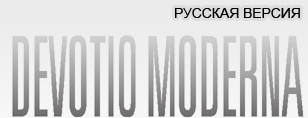|
DOM Cultural Center 15 September 2007
Lokai (Austria)
[ambient]
Florian Kmet:
Born in 1973, Innsbruck, Austria.
Change of residency to New York from 1991 to 1993. Several engagements in rock-bands.
Since 1994 Florian Kmet lives and works in Vienna (A) as a classical trained guitarist and singer with a wide range of activities
including solo-works within composed music and projects with improvising musicians.
Permanent member of Lokai and Superlooper.
Collaborations with Wolfgang Mitterer, Gunter Schneider, Max Nagl, Franz Hautzinger, Martin Brandlmayr, Ludwig Bekic,
Jorge Sanchéz-Chiong,...
Stefan Németh:
Born in 1973, Baden, Austria.
Studies in biology at the university of Vienna from 1992 to 1999.
Activities at the borderline between acoustic and electronic music as a guitarist / electronic musician since 1996.
Live-Performances, Installations, Filmscores. Permanent member of Radian, Lokai, Synapsis (by Oskar Aichinger).
Co-director of Mosz records.
Lives and works in Vienna (A).
Collaborations (live/studio) with Martin Brandlmayr, John Norman, Florian Kmet, Martin Siewert, Werner Dafeldecker,
Oskar Aichinger, Franz Hautzinger, John Butcher, Dean Roberts, Christian Fennesz, Otomo Yoshihide, Sachiko M.,
Toshimaru Nakamura, Florian Hecker, Hanno Leichtmann, Nicholas Bussmann, Hannes Löschel, Paul Skrepek, Achim Tang,...
Cooperations with video-artists like Norbert Pfaffenbichler, Lotte Schreiber, Maia Gusberti, nja, Michaela Schwentner,
Michaela Grill, Nik Thoenen, Dariusz Krzeczek, Manfred Grübl, Sigrun Appelt,...
LOKAI "7 million"
Sound is a mystery to be solved by artists who know that there is no solution. We call these people experimental artists, because their work consists of constant trial and error, but in contrast to proper scientists they will never know if they have failed or not, because failure in experimental music doesn't mean the results ain't good and vice versa or even regardless, because failure and success are all the same in this field as well as trial and error being the same. Lokai are two experimental musicians from Austria who have taken the hands-on approach on the dilemma by simply going for it for a living. The result is intriguing electronic noise ranging from subtle trickery to big walls of noise, basically wreaked from the simple analogue contents of an electric guitar. Lately I have come upon quite a lot of experimental electronic artists turning back to the electric guitar as a source for sound. Fennesz might be the best known, but also Accelera Deck, Arden and Greg Headly turn their experimental impulses for digital sound and noise towards the old axe. Does that comply with the current trend for hippie-commune free-form noise to avant-garde bands as the likes of Animal Collective to Lightning Bolt? Already I am thinking of the return of armswinging and cock-rock posing guitar heroes,but this time around shaking and waving it for elaborated highbrow audiences with an art background. More and more indie-bands seem to include electronic sounds that some years ago were described as "fringe", while more and more experimental artists from that fringe are coming off on soothing and more traditional guitar sounds; of course setting them in original and innovative surroundings and using them differently, but still, the strong borderlines that used to separate these fields seems to be dissolving slowly. Are we on something here or is it just my imagination trying to make some sense of the auditive debris collecting on my desk and near my stereo like pop culture sediments? Lokai, which is Stefan Németh from Radian [and also founder of the mosz-label] and Florian Kmet, also take the electric guitar as a sound source, but then set on so much processing, filtering and disrupting, then again soothing and smoothing it out, that they are far from any danger of being mistaken for an indie-band. It is even a far stretch to compare some of the more hypnotic and dozy noise-drones on here to My Bloody Valentine. Nevertheless, clearly discernible plucked guitar strings rear their heads from out of the mist or flood of electronic noise. The difference between the sound of a guitar string or an appreggio on a chord is vast to that of a digitally produced sound, though it is hard to pin it down in words. The hands-on approach of actually playing in contrast to programming, the one-off-ness versus the storage of settings, in other words, the guitar always sounds different, while the settings of a computer processor once saved will always produce the same sound [no change in hardware requisited]. No, I ain't getting back to Adorno here, but hidden in this equation there lies a lot of the magic of live music. But what if those sounds get processed so much you won't recognize them any more or so much that it doesn't make any difference anymore, then being mixed and worked at some more and finally pressed onto a CD to be listened to [thereby producing the same sound over and over again as well, but that is quite obvious]? Do the possibilities even if not taken make the difference? Actually, I am not able to find an answer amidst the varying tracks of Lokai on this CD. There are fragile and delicate patterns building up longwinded looped parts as well as there are noise-storms drifting in from the shore, some leaning more towards natural sounds, others staying cleanly in the digital realm. Amidst the flotsam there are moments of pure tenderness and annihilating rage, with some fieldrecordings sampled for atmosphere. Németh and Kmet are taking a subtle approach towards bringing sounds together, feeling them off on all sides to find surfaces that will go well with each other, even if a little force is necessary to make them come together. The duo will also take you from various dynamically moving and quickly changing places to minimal drones. The elegant bass-drone of "Chuuk" seems worth mentioning here, which takes almost a quarter of an hour to develop from almost inaudible into a big wall of flooding bass frequency topped with a little hint of high frequency topping and digital distortion only to finally disappear again into nothingness. Summing up that means, you get a lot to listen and think about, but no final answers. But since there are never any final answers, for how bleak and depressing would the world be if there were, that is a lot. cracked, 2005
Official site:
MORE >>
|
|
|
|
|





